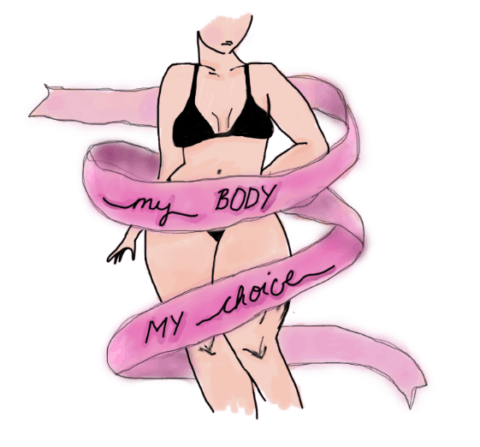Although abortion of some kind has been legal in Canada since 1969, reproductive choice remains a complicated and controversial issue. Through the upcoming Pro-Choice Awareness Week, the University of Saskatchewan Students’ Union Women’s Centre aims to provide information and support to individuals regarding abortion.
According to the USSU website, both the USSU and the USSU Women’s Centre identify themselves as pro-choice. This means that they believe that every individual has a right to choose what happens to their own body — and that includes the decision to terminate a pregnancy. This is a stance that is publically maintained regardless of the current USSU executive or university administration.
Pro-Choice Awareness Week runs from Mar. 13 to Mar. 17 and will include a variety of features. Volunteers from the Women’s Centre will be present in the Arts Tunnel to promote the awareness  week and provide information to U of S students.
week and provide information to U of S students.
The main message of Pro-Choice Awareness week remains the same, but each year focuses on one specific area of the movement. Ashley Clouthier, the co-ordinator of the USSU Women’s Centre, explained the central theme of this year’s campaign.
“This year we’re focusing a little more on supporting people who have had abortions rather than shaming, which is a universal problem. It’s not restricted to the pro-choice movement or the anti-choice movement — it’s something that everyone perpetuates,” Clouthier said. “Our big tagline is ‘one in three people will have an abortion at some point in their lifetime.’ So someone you know has had an abortion and will eventually need an abortion, probably. Support, don’t shame.”
Advocating for a contentious issue is not without its challenges, and the pro-choice movement is no exception to this rule.
“It’s a really controversial topic. Very few people sit on the fence when it comes to reproductive rights and access to abortion, so if we’re really obviously, blatantly declaring ourselves pro-choice, obviously it’s going to rustle some feathers on the other side of the movement, so I think the biggest challenge is just engaging with that side,” Clouthier said.
She stressed, however, that the Women’s Centre and its volunteers aren’t interested in creating more conflict — but rather engaging in intelligent discussion.
“It’s not in our interest to start any fights. We don’t want to upset anybody, we don’t want to come across as being adverse, or bullies or anything like that. I guess the biggest challenge is remaining a positive presence without necessarily fueling the fire that already exists between the two sides of the movement,” Clouthier said.
Clouthier emphasised how the current political climate makes things like Pro-Choice Awareness Week more essential than ever before.
“It’s more important than ever that people are aware of how important it is that people who have an unwanted pregnancy and wish to end that pregnancy have every opportunity to do so, because we can see what’s happening in the United States right now is terrifying. It’s essentially a giant step backwards, for not just women but for reproductive rights in general,” Clouthier said.
For students that are interested in helping advocate for reproductive rights, Clouthier had a number of suggestions, ranging from stopping by the table during the week to doing a simple Google search to learn more about abortion stigma.
Despite the challenges facing the pro-choice movement and reproductive rights, Clouthier remains optimistic that even a few committed individuals can make a huge difference.
“In any small way, we can just stand up and say we’re unapologetically pro-choice, we’ll support you no matter what you need to do — I think that’s helpful.”
—
Emily Klatt / Sports & Health Editor
Graphic: Paige Sutherland
Leave a Reply